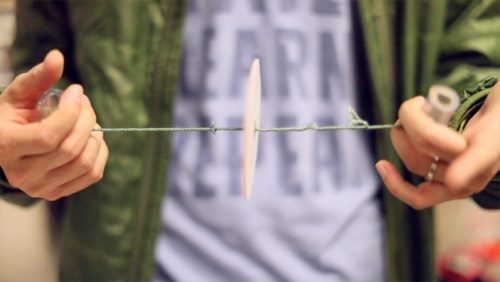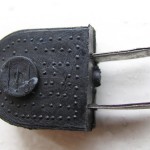Growing up in India, Manu Prakash entertained himself with a bottle cap that spun around on two strings that he tugged with his fingers. As a physical biologist at Stanford University in California, he is now transforming that simple toy, called a whirligig, into a cheap tool to help diagnose diseases such as malaria.
Other researchers have come up with low-tech, inexpensive centrifuges that used salad spinners3 and egg beaters4, but these devices could manage only around 1,200 rotations per minute (r.p.m.) and took too long to process samples, says Prakash.
Hoping to do better, his team went on a shopping spree to a toy store, collecting spinning gizmos and filming them with a high-speed camera. Yo-yos spun too slowly (and required training to use). But whirligigs were both easy to operate and reached speeds of 10,000 r.p.m., comparable to a commercial centrifuge.
See & read more at Nature. Thanks to Rodger Kram & Austin Liu.






